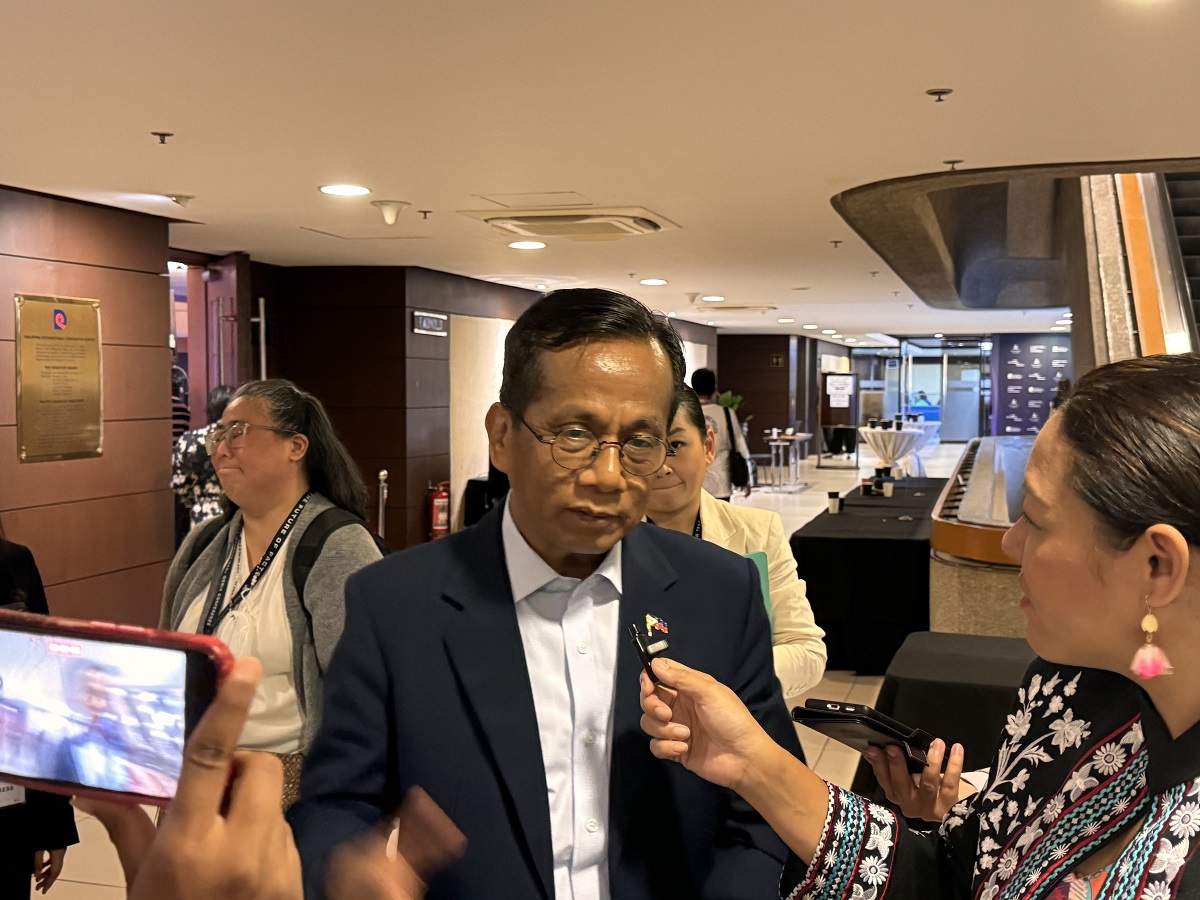PH says no intention of restricting investments, visitors from China

The Philippines still welcomes investments and visitors from China and will continue to do so despite the recent incident in Ayungin Shoal that left several Filipino soldiers injured, a top government official said Wednesday.
According to National Economic and Development Authority (NEDA) Secretary Arsenio Balisacan, the country will continue to be open to investments, as part of the global supply chain.
“We have no intention of restricting investments or tourists from China to the Philippines. Everyone is open to come to the country for investment as investors, as tourists,” he said in a panel during the East-West Center’s International Media Conference in Pasay City.
“I reiterate, we are all part of these interconnected economies in the region and (whether) we like it or not, we are all linked to that same global supply chain directly or indirectly,” he added.
Just last week the Armed Forces of the Philippines (AFP) reported that a service member of the Philippine Navy suffered a “severe injury” from a collision between a Chinese ship and a local vessel performing a regular rotation and resupply (RORE) mission in the Ayungin Shoal.
It was later revealed that the service member lost a thumb during the incident, which has been denounced by the Department of Foreign Affairs (DFA) and the Pentagon.
The vessel was conducting a RORE mission to the BRP Sierra Madre, which has been grounded in the Ayungin Shoal since 1999. The ship, manned by more than a dozen Marines and sailors, has become a symbol of Philippine sovereignty in the offshore territory.
Ayungin Shoal is located 105.77 nautical miles from the nearest Philippine province of Palawan and constitutes part of the country’s 200-nautical mile continental shelf as provided under the United Nations Convention on the Law of the Sea (UNCLOS).
Sought for comment on the impact of geopolitical tensions on trade, Balisacan said the Philippines has been affected one way or another.
“Nobody is spared from supply chain disruptions whether that is due to natural shocks like climate change or geopolitical tension, so clearly, the Philippines has been affected one way or another, directly or indirectly,” he said.
Balisacan said in terms of foreign direct investments (FDIs), China has contributed 0.9% of the total inflows in the last three years, down from a peak of 4.4% from 2015 to 2019.
“I don’t think that we can directly attribute to that (geopolitical tensions) because overall in the world, global and Asia Pacific, FDI has been falling down and so to what extent you can attribute to geopolitical issues is not clear,” he said.
“It could be one of those (factors) directly, indirectly, but it’s hard to attribute that in the absence of more information,” Balisacan added.
Balisacan noted that official development assistance (ODA) from China has also been “very small” at about 5% of the total assistance being received, as the country has been diversifying its sources, covering countries and multilateral agencies.
China has refused to acknowledge the Permanent Court of Arbitration’s 2016 ruling on a case filed by the Philippines that invalidated its nine-dash line. Beijing in 2022 claimed that it will continue to adhere to what it described as a “friendly consultation” with the Philippines after several Chinese vessels have been found “swarming” areas in the West Philippine Sea.
The Philippines has already filed a total of 153 diplomatic protests against China regarding the territorial dispute under the administration of President Ferdinand “Bongbong” Marcos Jr.
For his part, National Security Council Assistant Director General Jonathan Malaya said the latest collision incident was not an act of war, and should not trigger mutual defense obligations with the United States.
“At this time, we can settle this issue on our kasi (because) we have to ask this question — do we need foreign intervention here, di ba (right)?” he said on the sidelines of another panel discussion on Wednesday afternoon.
“Kasi (because) when you get foreign intervention, you’re bringing in a lot of other players to the picture. Sa ngayon, ang position natin sa (The position of the) government is to settle this issue with China, with them. Hindi pa napapanahon na humingi tayo ng tulong sa ibang bansa (It is not yet the proper time for us to ask for help from other countries),” he added. —KBK/VBL, GMA Integrated News




